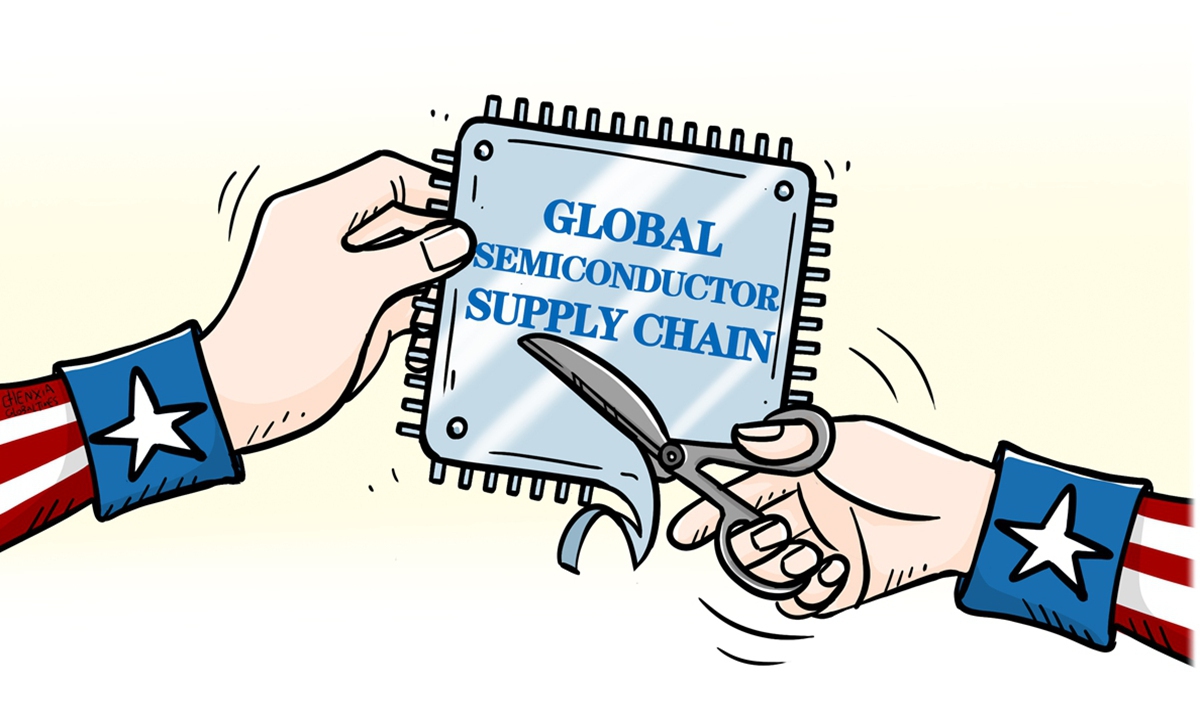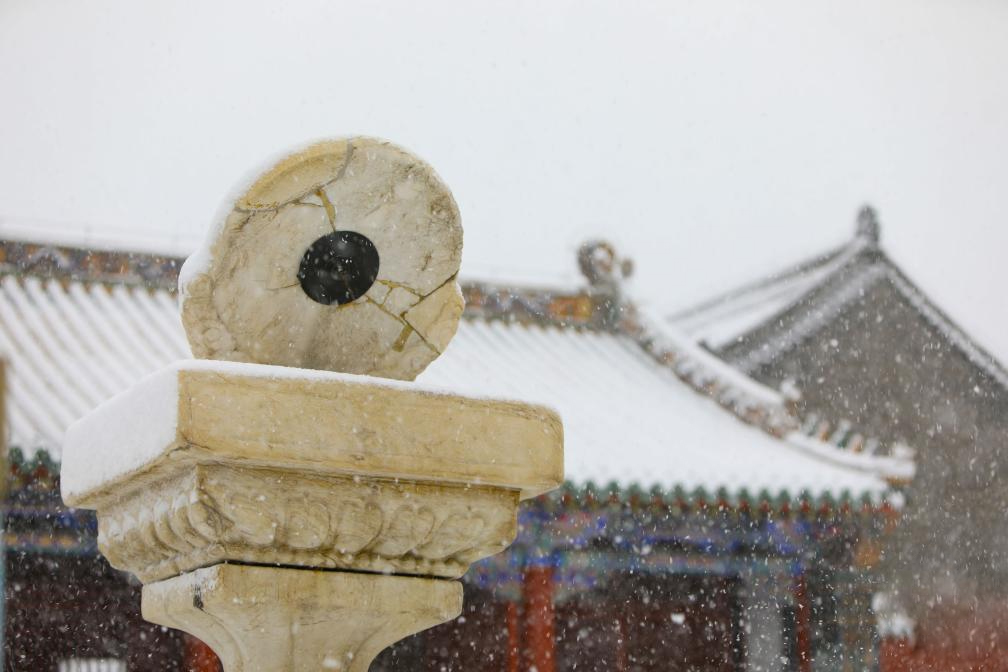US chip curbs drive China’s acceptance of domestic tech

Illustration: Chen Xia/GT
While the US move to block Chinese companies from accessing high-performance artificial intelligence (AI) chips produced by American companies or using American technology is causing trouble for China's technology sector, the pursuit of alternatives is opening up new opportunities for domestic chips and related applications.
Baidu, one of China's leading AI companies, ordered 1,600 of Huawei Technologies' 910B Ascend AI chips - which the Chinese firm developed as an alternative to Nvidia's A100 chip - for 200 servers, and Huawei had already delivered more 60 percent of the order as of October, Reuters reported on Tuesday, citing two anonymous sources. Neither Huawei nor Baidu has confirmed the report.
The development, if confirmed, is a sign that US pressure is prompting Chinese acceptance of Huawei's products as an alternative to Nvidia's, according to the report.
While the order, reportedly worth about 450 million yuan ($61.83 million), is tiny compared with the number of AI chips that Chinese tech companies have historically ordered from Nvidia, it is significant for China's chip and AI development.
It seems what US industry players have been warning the Biden administration about is actually in play. The rise of domestic chips won't come easily as it requires time, money and market space, but US pressure has greatly accelerated the process.
The US has been tightening restrictions on exports of chips and chip tools to China, including those of Nvidia. But the only result of those US curbs, which are aimed at safeguarding US technology hegemony and violating the principle of fair competition, is to cut American chip giants out of the Chinese market while facilitating Chinese tech companies' shift to local supplies.
For instance, Nvidia CFO Colette Kress said in June that, "Over the long term, restrictions prohibiting the sale of our data center products to China, if implemented, will result in a permanent loss of opportunities for the US industry to compete and lead in one of the world's largest markets." At that time, there were media reports that the Biden administration was considering new restrictions on exporting AI chips to China.
It is technological suppression by the US that has made China and its technology sector determined to take the path of independent innovation to break these shackles. Over the years, the Chinese government has poured resources into the semiconductor industry, while Chinese companies have increased investment in research and development to accelerate technological breakthroughs.
These days, signs that those efforts have paid off have emerged one by one. Huawei in August introduced a smartphone that uses internally developed processors featuring advanced semiconductor technology, highlighting its hard-earned progress under sanctions.
Baidu's reported purchase of Huawei's AI chips could be another signal. It's not only an indication of Baidu's confidence that Huawei's chip technology and chip performance can meet its needs for AI development, but also represents Chinese AI companies' efforts to reduce their supply chain vulnerability under the US curbs, so as to ensure the long-term development of their AI technology and applications amid global competition.
The development of the domestic chip industry also provides more opportunities for Chinese technology companies, which have been relying on imported chips to develop new products.
With the pursuit of domestic alternatives, their dependence on external supplies will be reduced, which will be conducive to their supply chain stability while lowering product costs and making them more competitive in the global market.
The development of the Chinese chip industry still faces challenges in terms of technology, production capacity and supply chains. But that won't shake the confidence and determination of the industry.
As long as the US chip curbs exist, Baidu's reported order for Huawei chips is not just a breakthrough, it's also the start of the practical application of China's domestic AI chips in terms of technology levels and market acceptance.
Photos
Related Stories
- Tightened US chip controls backfire on global players, causing more losses
- Chinese scientists develop super-efficient all-analog photoelectronic chip
- GT Voice: US chip firms can’t endure more limits on China sales
- US' escalating crackdown on China's chip industry in the past year
- Scientists develop fully integrated memristor chip with low energy consumption
- China flays new US curbs on chip exports
Copyright © 2023 People's Daily Online. All Rights Reserved.









